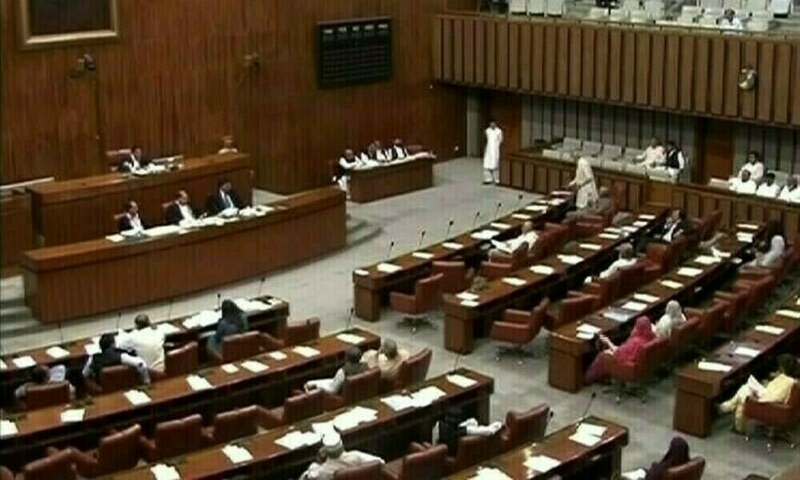ISLAMABAD: The Senate Standing Committee on Finance and Revenue, Monday, warned the Federal Board of Revenue (FBR) to remain out of the domain of provinces during finalisation of the Finance Bill 2025-26.
The meeting chaired by Senator Saleem Mandviwalla, held its fourth consecutive session in the Parliament House, to review the Finance Bill, which includes the Annual Budget Statement presented to the Upper House on June 10 under Article 73 of the Constitution.
Mandviwalla warned that the FBR should not enter into the domain of provinces by including services in different provisions of the Finance Bill 2025-26. Sindh Revenue Board (SRB) has submitted different observations on Finance Bill 2025-26 where the FBR has illegally entered into the domain of services, he added.
FBR Member Inland Revenue (Policy) Dr Najeeb Ahmad informed that the gradual withdrawal of sales tax exemption from erstwhile tribal areas in phase-wise manner has been agreed between the International Monetary Fund (IMF) and the Federal Board of Revenue (FBR).
Budget FY2025-26: Sindh announces to expand sales tax to all major services
The committee examined the tax exemption policy for FATA/ PATA, which will begin phasing out with a 10 per cent GST in the next fiscal year— gradually increasing to 18 per cent.
The FBR Member said that this two-stage process has been agreed with the IMF for the withdrawal of sales tax exemption on erstwhile tribal areas.
Senator Shibli Faraz asked what tangible benefits have tax exemptions brought to these regions. Where is the investment and employment, he asked.
The finance minister is scheduled to brief the committee on this issue in the next session.
The meeting was attended by Finance Minister Muhammad Aurangzeb, Senators Farooq Hamid Naek, Syed Shibli Faraz, Anusha Rehman Ahmad Khan, Mohsin Aziz, Ahmed Khan, Manzoor Ahmad, Mohammad Abdul Qadir, and senior officials from the FBR and other key departments.
Opening the session, Chairman Mandviwalla lauded the “diligence and active presence” of the federal minister for finance, stating: “The minister’s consistent participation and valuable input during these sessions reflect the government’s commitment to transparent fiscal reforms.”
Senator Anusha Rehman raised critical points about the regulation of e-commerce platforms emphasising not to burden unemployed individuals specifically (youth and women) making ends meet from home. Only register platforms doing business above Rs20million.
On the proposed e-billing system, Senator Mohsin Aziz noted, “Malaysia began phased implementation three years ago. We must assess our readiness.”
Chairman Mandviwalla acknowledged the valuable suggestions of Senator Mohsin Aziz and Senator Anusha Rehman, stating to bring written proposals for phased implementation of e-billing. “Talking will not suffice.”
The committee also discussed the Islamabad Capital Territory (Tax on Service) 2001, Provisions of the Finance Bill, 2005.
It was discussed that as per the IMF benchmark “negative list of services” should also be developed.
While discussing the Public Finance Management Act, 2019 a major disclosure rocked the session, revealing billions held and invested by public sector entities which are not transferred to central treasury but invested by these entities for profit. Senator Anusha Rehman condemned this, stating the government is borrowing its own money from banks and paying interest, while institutions profit off public funds.
The committee directed the Establishment Division and Ministry of Finance to submit complete account details of all such institutions, lists of investments and profits earned, legal basis for withholding funds from the national treasury.
The committee, while discussing the Federal Excise Provisions of Finance Bill, 2025, approved abolishing federal excise duty (FED) on first purchase of immovable property.
The Senate Committee will reconvene Tuesday with the finance minister scheduled to address tax exemption policies and provide further clarity on institutional financial practices.
Copyright Business Recorder, 2025





